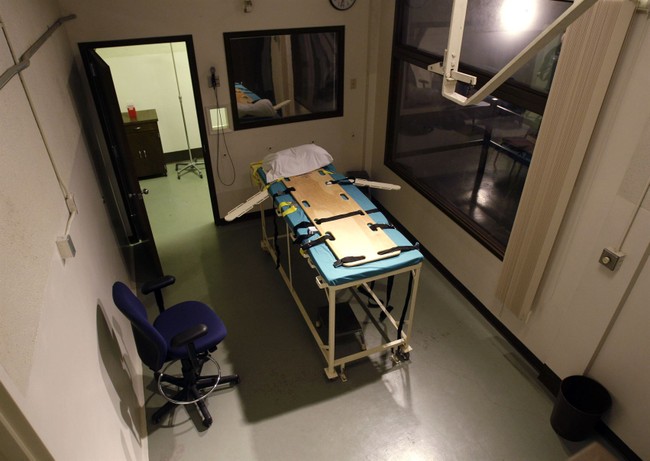
There have been several high-profile death penalty cases over recent years that have prompted discussion about the practice and whether it should continue. There are valid arguments on both sides of the issue, but some of these cases illustrate why I oppose capital punishment and argue for its abolition.
We can start with the recent case of Robert Roberson in Texas, who was scheduled to be executed on Thursday. The execution was delayed after some legal maneuvering among a bipartisan group of state lawmakers. But he remains on death row for the time being.
Roberson was convicted for allegedly killing his two-year-old daughter, Nikki. The prosecution used the largely discredited “shaken baby syndrome” theory to convict him in 2003. Since then, this theory has been questioned by numerous experts and shown to be an unreliable argument for convicting Roberson and others.
Even Brian Wharton, the former detective who was instrumental in Roberson’s prosecution, has had a change of heart. “We rushed to judgment. We were wrong, the jury was misinformed, and Robert is not guilty of any crime,” he said in a letter to the Texas parole board. Roberson’s case shows how flawed science can lead to a person’s life being threatened by the same government whose role is to protect it.
There is also the case of Richard Glossip, who has spent 26 years on death row in Oklahoma despite serious doubts about his guilt. There have been two independent investigations, highlighting serious problems with the state’s case against him.
Oklahoma Attorney General Gentner Drummond has argued that the state should overturn Glossip’s conviction due to prosecutorial misconduct and give him another trial. He was convicted of murder in 1998 based primarily on the testimony of Justin Sneed, who actually committed the murder. Sneed claimed Glossip hired him to commit the act.
However, there have been plenty of doubts raised about the reliability of Sneed’s testimony. He did not implicate Glossip in the crime at first. It was only after detectives mentioned his name multiple times during the interrogation that he finally indicated that Glossip was involved in the murder.
Despite the lack of physical evidence tying Glossip to the murder, such as fingerprints or DNA, the jury convicted him. Subsequent investigations into the conviction revealed that the prosecution engaged in questionable behavior. This includes instructing law enforcement to destroy evidence that could have exonerated Glossip. Despite these revelations, the appeals courts and state parole board denied clemency.
Roberson’s and Glossip’s cases are not outliers. More than 165 people sentenced to death have been exonerated in the U.S. since 1973, according to the Montana Innocence Project. This means for every nine people who are executed, one person is found to be innocent.
The story of Carlos DeLuna exemplifies how flawed our justice system is. He was executed in 1989 for a crime that was most likely committed by a man named Carlos Hernandez, the Montana Innocence Project says:
Six years after DeLuna’s execution, James Leibman, a law professor at Columbia University, conducted one of the most thorough reviews of a death penalty case in U.S. history that revealed mounting evidence of DeLuna’s innocence.
DeLuna’s case, along with many others, raises an important question: How can we continue to support a system that will inevitably mete out an irreversible punishment on those who do not deserve it?
The risks of capital punishment should be troubling to anyone who values justice and life. The hard reality is that there is absolutely no way to ensure that no innocent people will be executed after being falsely convicted of a crime. Even government officials with the best of intentions cannot guarantee that they will not send an innocent person to their death.
Even further, those who are undeservedly executed cannot seek redress.
If someone is convicted of theft or assault and then later found to be innocent, they can possibly still be freed. Even further, they can use the court system to be compensated for the state’s error or corruption. The false conviction is still wrong, but at least the victim is still alive and can still experience a level of freedom.
With the death penalty, justice is impossible because the offended party is dead. This renders the use of capital punishment a morally indefensible position, especially since one cannot show that the death penalty provides enough of a benefit to society to warrant the killing of people who are not guilty. As someone who is pro-life, I abhor the taking of innocent life.
I was once in favor of capital punishment. My change of heart came when I could not accept that innocent people would inevitably be murdered by a government that is deeply flawed. The same type of entity that runs our DMVs should never be allowed to decide who lives and dies.
I realized that to support the death penalty, one has to accept that innocent lives will be lost. Note, I am not saying those who support capital punishment like that innocent people die. They view it as a tragic outcome, just as I do. But they are willing to accept it.
I am not willing.
This is why I believe, as English jurist William Blackstone once said, that it is “better that ten guilty persons escape, than that one innocent suffer.”
